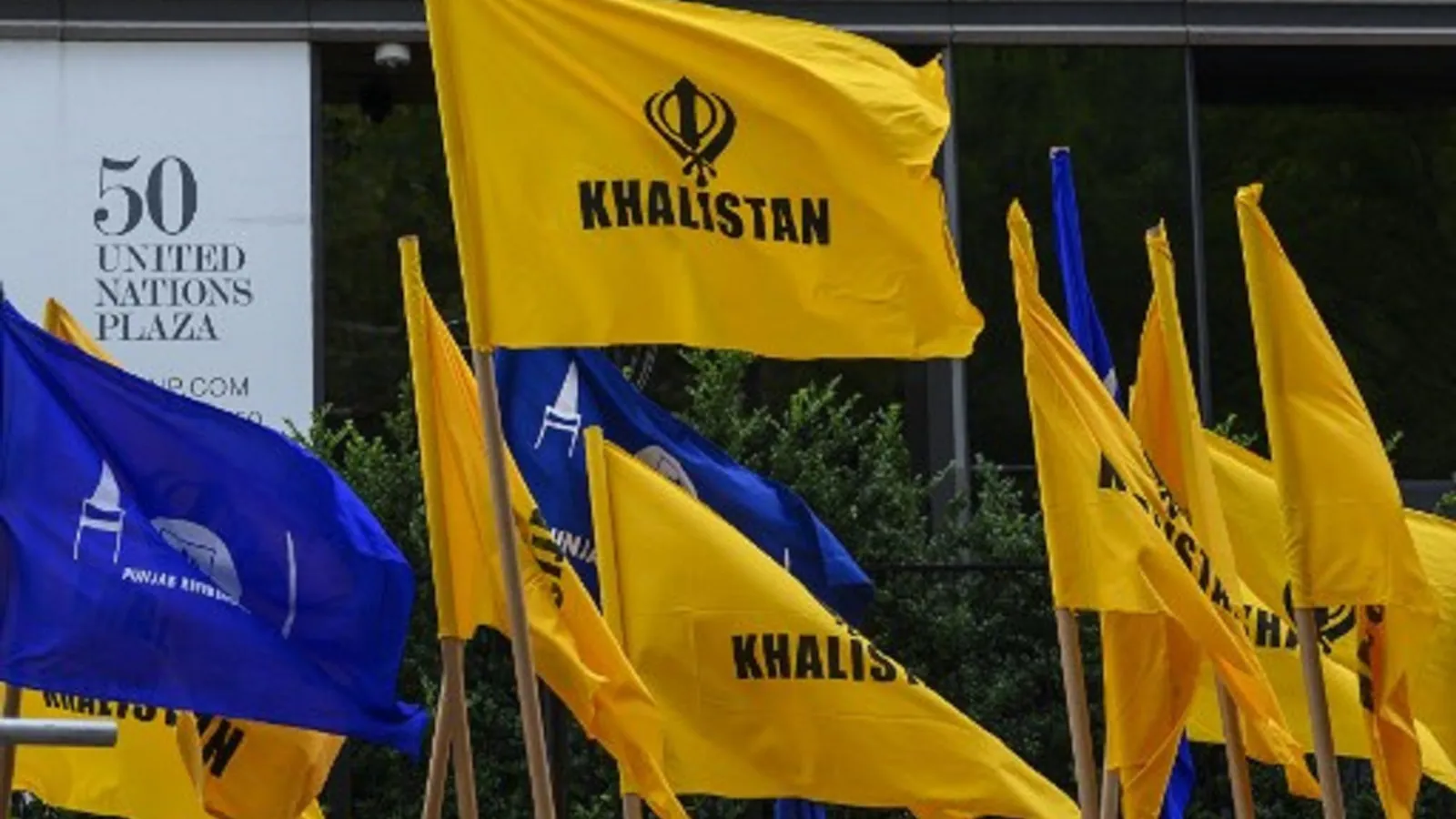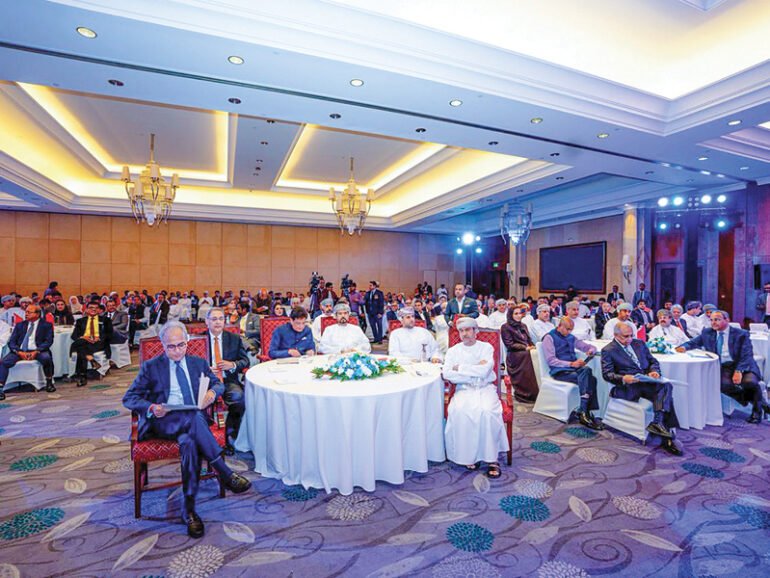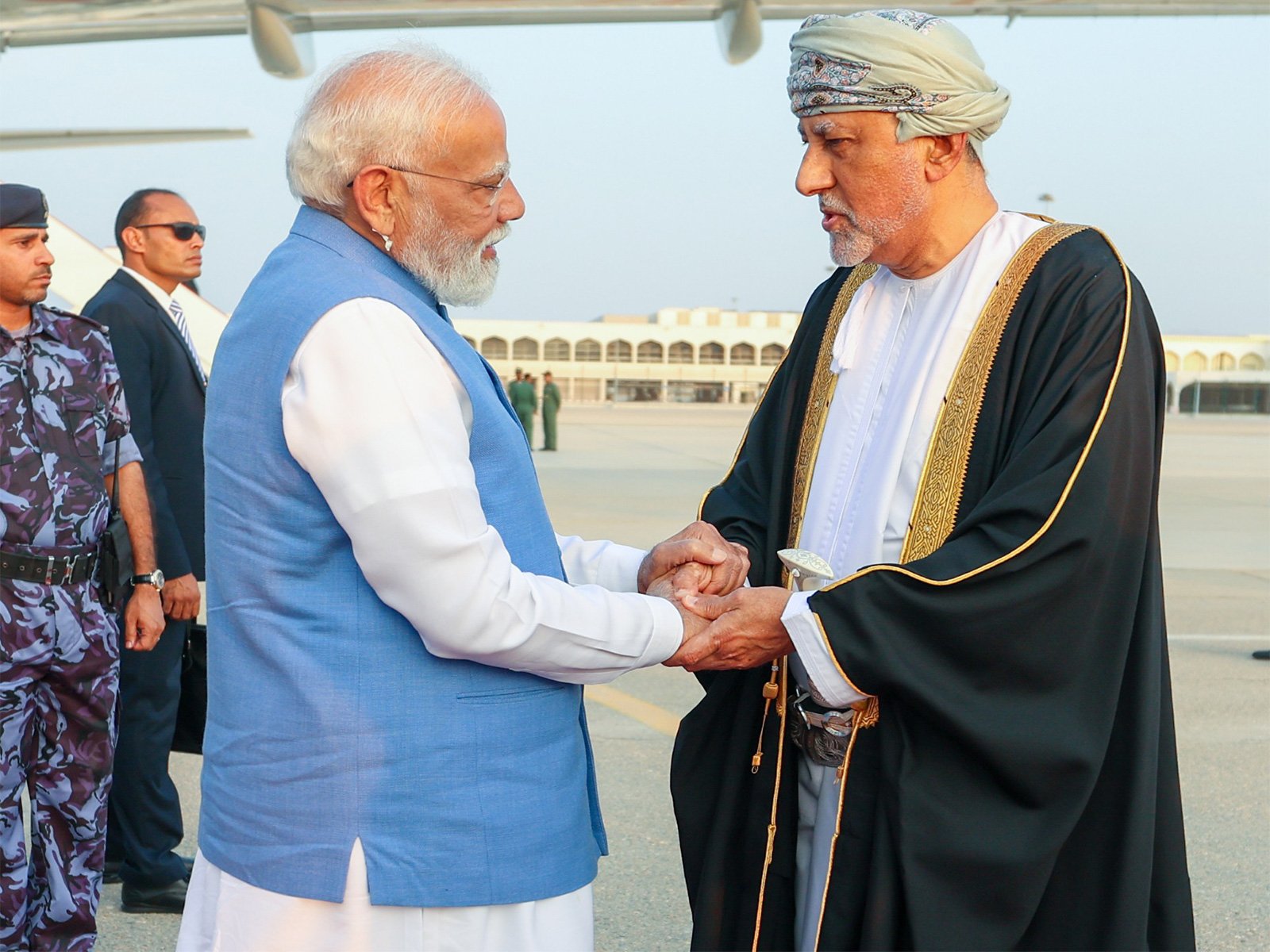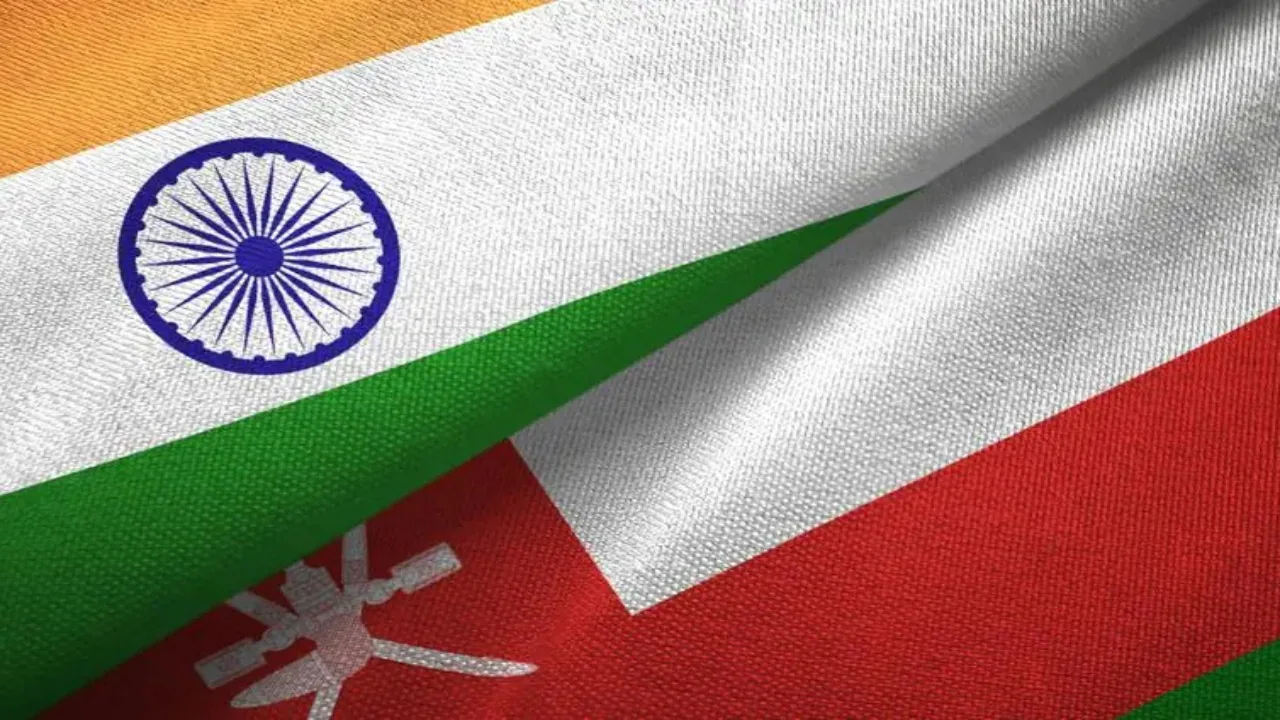-
At some protests, the separatists were outnumbered by other Indians who shouted pro-India slogans and waved the tricolor
-
Shouts of “Khalistan!” were drowned by slogans of “Vande mataram” and “Bharat Mata Ki Jai (victory to Mother India)”
The delusion of an independent Khalistan seems to exist only in a small section of the diaspora, wrote senior journalist Ashok Easwaran in the National Herald. Most young immigrants to Canada from Punjab today are obsessed with passing the IELTS exam.
Before the ‘Khalistan rally’ in the United States and Canada on July 9, the organisers had implied that it would be akin to India’s First War of Independence against the British. But instead of the promised hordes, what one saw was a gaggle of people waving Khalistan flags.
At some protests, the separatists were outnumbered by other Indians who shouted pro-India slogans and waved the tricolour. Shouts of “Khalistan!” were drowned by slogans of “Vande mataram” and “Bharat Mata Ki Jai (victory to Mother India)”.
There had earlier been some consternation in the non-resident Indian community because Khalistani elements had put up posters calling India’s high commissioner to Canada Sanjay Kumar Verma and the Indian consul general in Toronto Apoorva Srivastava the ‘killers’ of Hardeep Singh Nijjar, a leader of the Sikhs for Justice organisation who was shot dead in the parking lot of a gurdwara in Canada on June 19.
Avtar Singh Khanda, chief of the Khalistan Liberation Force and a close aide of the separatist preacher Amritpal Singh died on June 15 in England, reportedly of blood cancer. This fuelled allegations that Khanda was poisoned by agents acting on behalf of the Indian government.
It was alleged that Khanda’s death was similar to the death of Alexander Litvinenko, a former KGB agent who died after drinking tea laced with polonium-210. (Radiation poisoning from polonium-210 causes cancer-like symptoms.)
Discontent among Sikhs in North America is not new. I remember taking my in-laws to one of the largest gurdwaras in the Chicago area in the mid-1990s. At one point, before the langar, the hall reverberated with pro-Khalistan and anti-India slogans.
My mother-in-law was particularly perturbed. As a 13-year-old, she had fled Pakistan immediately after the Partition in 1947, walking about 500 kilometres from her home in Montgomery, Pakistan, to Delhi with a group of refugees. Her toli (caravan) of Hindu refugees was protected on the journey by armed Sikh men who considered it their duty to protect the defenceless from Muslim marauders.
Many Sikh Americans have told me of their anguish when their patriotism was questioned after the 1984 assassination of Prime Minister Indira Gandhi, Easwaran pointed out. However, by 2000, most Sikh Americans seemed to have made peace with the past. But even as old wounds were healing, the turning point came when the farmers agitating for the repeal of the farm bill in 2020 were called “Khalistanis” and members of the “tukde- tukde gang” by some leaders of the BJP government.
These accusations denigrated the contribution of the Punjab farmer while questioning the patriotism of a community with a stellar contribution to India’s defence services. Punjab’s contribution to the armed forces has always been high—it contributes about 8 per cent of the Indian army’s rank and file with only 2 per cent of India’s population. And the Sikh Regiment is by far the most decorated regiment in the Indian Army.
But the image of a culture besieged by a hostile government plays especially well with those Sikhs in North America who come from rural backgrounds and have not had the benefit of a cosmopolitan education. Those who question their loyalty are unaware of the importance of sacrifice and service to the Sikh community.
All Sikhs are made aware as children of the sacrifices of Guru Tegh Bahadur, who was executed by the Mughal emperor Aurangzeb, and Guru Gobind Singh, whose two sons were buried alive by the Mughal governor Wazir Khan.
The emergence of the Khalistani separatist and self-styled preacher Amritpal Singh and his arrest seemed to have reinforced the feeling that the BJP government was targeting Sikhs in India. Some first-generation Sikh Americans have even asserted that Amritpal Singh was Jarnail Singh Bhindranwale version 2.0.
The delusion of an independent Khalistan, however, seems to exist only in a small section of the diaspora. The Canadian journalist Terry Milewski, who has written a book on the global Khalistan movement, is categorical in stating that Khalistan has much stronger support among the Sikh diaspora than in Punjab itself.
The movement abroad is sustained through the backing of the Pakistani Inter-Services Intelligence (ISI) and more recently China, he said. Demography too plays a role. The rising number of Sikhs in Canada has made that country fertile ground for separatist groups. For Punjabis, Canada is the destination of choice.
- The recent rally in San Francisco could not even attract 50 people, he said. “More than 99 percent of the Sikhs in the United States do not support the Khalistanis but they prefer to remain silent
- As a result, the separatists who are very aggressive have taken over the management of a few gurdwaras,” he said.
- Devout Sikhs say that the separatists’ actions violate all the commandments that the Guru Granth Sahib enjoins: sat (truth), santokh (contentment), daya (compassion), namrata (humility) and pyar (love)
In 2022, there were 70,000 immigrants from Punjab who arrived in Canada, making it the Indian state which sends the largest number of migrants to that country. For immigrants from India, the process of obtaining an American green card or permanent residency can take at least a decade, if not more. In comparison, an eligible Indian immigrant can get Canadian permanent residency in less than a year.
Many, if not most, of the separatists in Canada would be citizens of that country. Many Canadian provinces like British Columbia, Ontario and Alberta have large Sikh populations. Jagmeet Singh, the leader of the New Democratic Party, elected from British Columbia, is a critical political ally propping up the minority government of Prime Minister Justin Trudeau.
In fact, speaking to an American audience in 2016, Trudeau said he had more Sikhs in his council of ministers than Prime Minister Narendra Modi did. Some analysts say that this has muted Trudeau’s criticism of Khalistani extremism in the country, wrote Easwaran.
The separatists, for their part, declare that their agitation reflects the simmering anger in the Sikh community at large. This does not seem to be borne out by the ground reality, however. Most young immigrants to Canada from Punjab today are obsessed not with Khalistan, but with passing the IELTS examination as a prelude to the immigration process.
In the land which immortalised Heer Ranjha, the most sought-out brides are those who have passed the IELTS examination. These young women are married to young gentlemen on the express condition that the groom’s family pays for the bride’s nursing studies in Canada.
A prominent Sikh activist Sukhi Chahal, who is also an engineer and entrepreneur, says he does not take either the Khalistan movement or its organisers seriously. “These are people who cannot even win an election in a local gurdwara,” he said.
“If they really want to help the people of Punjab, they should go back to that state, which they will never do. They are exploiting the lingering grievances in the community following the 1984 anti-Sikh riots in Delhi. The young fall prey to their rhetoric.”
Chahal has been an outspoken critic and has received threats from the separatists, a fact he has shared with the FBI. The Khalistan rallies, he said, is more of a social media phenomenon.
The recent rally in San Francisco could not even attract 50 people, he said. “More than 99 percent of the Sikhs in the United States do not support the Khalistanis but they prefer to remain silent. As a result, the separatists who are very aggressive have taken over the management of a few gurdwaras,” he said.
Devout Sikhs say that the separatists’ actions violate all the commandments that the Guru Granth Sahib enjoins: sat (truth), santokh (contentment), daya (compassion), namrata (humility) and pyar (love).
********************************************************
Readers
These are extraordinary times. All of us have to rely on high-impact, trustworthy journalism. And this is especially true of the Indian Diaspora. Members of the Indian community overseas cannot be fed with inaccurate news.
Pravasi Samwad is a venture that has no shareholders. It is the result of an impassioned initiative of a handful of Indian journalists spread around the world. We have taken the small step forward with the pledge to provide news with accuracy, free from political and commercial influence. Our aim is to keep you, our readers, informed about developments at ‘home’ and across the world that affect you.
Please help us to keep our journalism independent and free.
In these difficult times, to run a news website requires finances. While every contribution, big or small, will makes a difference, we request our readers to put us in touch with advertisers worldwide. It will be a great help.
For more information: pravasisamwad00@gmail.com

